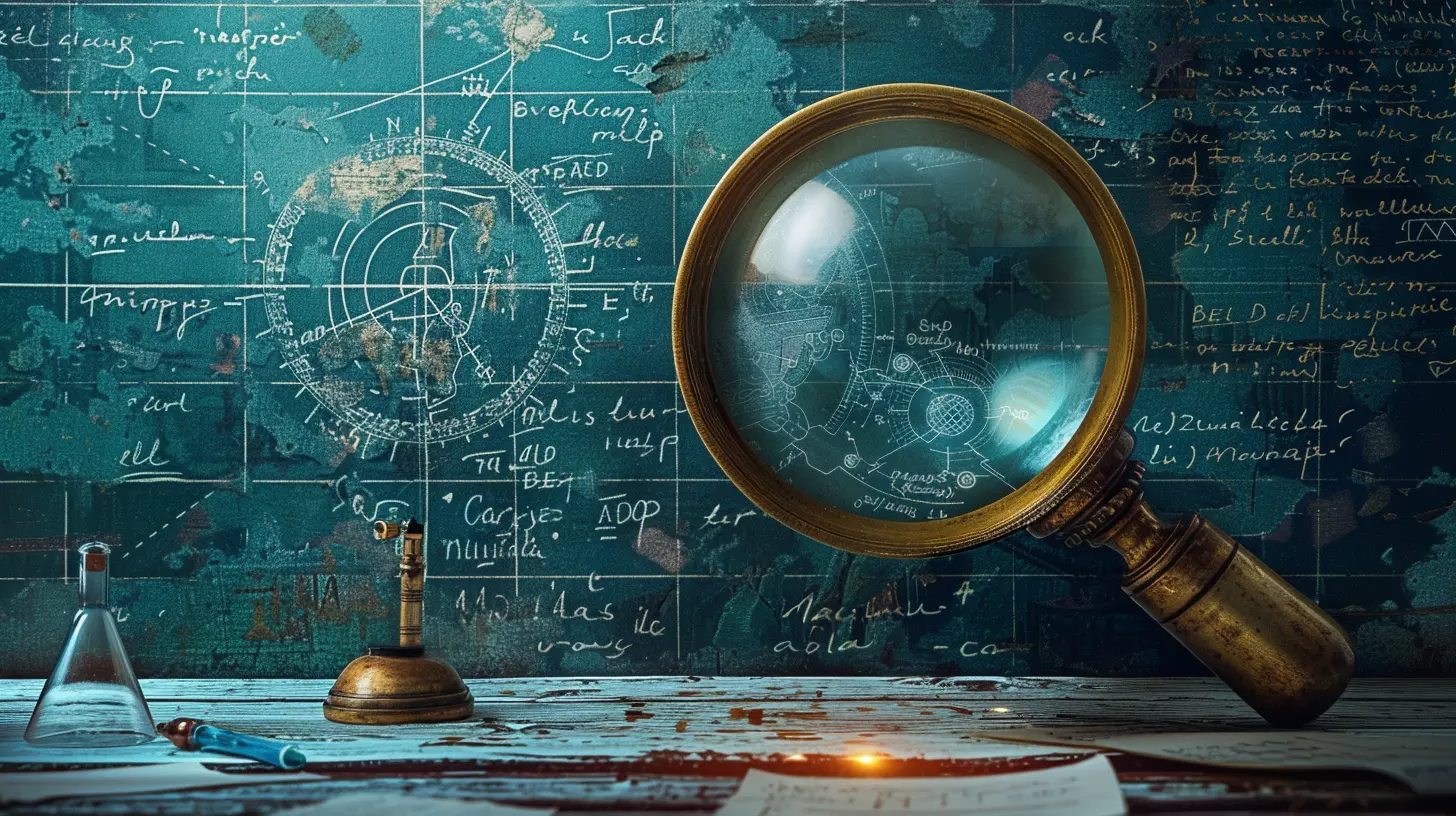Why Curiosity is the First Step in Problem Solving
22 June 2025
Have you ever noticed how most great discoveries, innovations, and breakthroughs started with a simple question? It’s that itch — that burning curiosity — that sparks the whole process of problem-solving. Whether it’s figuring out why your Wi-Fi isn’t working or trying to crack a complex scientific dilemma, it all begins with one thing: curiosity.
Curiosity is like the engine that drives the entire problem-solving vehicle. Without it, there is no journey. No motion. No solution. So, let’s dive deep and unpack why curiosity is the very first — and most important — step in solving any problem, big or small.
Table of Contents
1. The Nature of Curiosity2. Curiosity vs. Passive Thinking
3. How Curiosity Ignites Problem Solving
4. Curiosity in Everyday Life
5. The Science Behind Curiosity
6. Famous Examples Where Curiosity Led to Great Solutions
7. How to Cultivate Curiosity for Better Problem Solving
8. The Curiosity Mindset in Education and the Workplace
9. Final Thoughts

The Nature of Curiosity
So, what exactly is curiosity? It's more than just asking “why” over and over like a five-year-old (though they might be on to something). Curiosity is a deep desire to understand, to know more, to explore possibilities. It’s the mental itch that needs to be scratched.You’re not just passively accepting things as they are — you’re poking the box to see what happens. At its core, curiosity is about being engaged with the world around you and questioning how it works.
Curiosity vs. Passive Thinking
Let’s face it: it’s easy to go through life on autopilot. Wake up. Go to work. Come home. Repeat. When you're not curious, you tend to accept problems as just...annoyances. You might say things like, "That's just the way it is," without ever asking, "Does it have to be that way?"Curious people, on the other hand, don’t just take things at face value. They want to know the why behind every what. And that makes a world of difference.
In problem-solving, passive thinking is like staring at a locked door and waiting for someone else to open it. Curiosity? That’s you checking under the mat, jiggling the doorknob, maybe even trying to pick the lock.
How Curiosity Ignites Problem Solving
Alright, so how does curiosity actually kick-start the problem-solving process?1. It Helps You Define the Problem Clearly
Ever tried solving something without knowing exactly what’s wrong? Frustrating, right? Curiosity motivates you to dig into the issue. It asks important questions like:- What's really causing this?
- Have I seen something like this before?
- What happens if I try X instead?
Before you can fix a problem, you have to understand it. Curiosity makes sure you do just that.
2. It Opens Up New Possibilities
When you're curious, you're not locked into one way of thinking. You start to wonder:- What if I approach this differently?
- Why does everyone else do it that way?
- Is there a better method?
This openness is what often leads to creative solutions that others might overlook.
3. It Keeps You Going When Things Get Tough
Let’s be honest — solving problems is rarely easy. There are setbacks, dead-ends, and “OMG why isn’t this working?!” moments. Curiosity fuels persistence. You want to know what’s on the other side, so you keep going.Curiosity in Everyday Life
You don’t have to be Einstein or a rocket scientist to use curiosity to your advantage. It shows up in everyday problems too.Running late to work every day? The curious mind starts analyzing patterns. Is it traffic? Your morning routine? A curious person actually tests different wake-up times or routes.
Struggling to lose weight? The curious approach explores diet, exercise habits, even sleep cycles. Instead of blaming slow metabolism, curiosity pushes you to ask deeper questions.
From fixing a leaking tap to managing relationships better, curiosity leads to meaningful actions.
The Science Behind Curiosity
Curiosity isn’t just a nice-to-have personality trait — it’s deeply hardwired into our brains. Neuroscience shows that curiosity activates the brain’s reward system. Specifically, it lights up the same areas that respond to things like food and money.Crazy, right?
In 2014, a study published in the journal Neuron found that when people were curious, they learned better and retained more information. Why? Because curiosity doesn’t just make you want to learn — it makes learning more effective.
So next time you feel that “itch to know,” remember it’s your brain’s way of saying, “Hey, pay attention — this is important!”
Famous Examples Where Curiosity Led to Great Solutions
You’ve probably heard of some of these — but now you’ll see them with fresh eyes.1. Isaac Newton and the Apple
A falling apple wasn’t just an apple to Newton. It was a mystery. Why did it fall? Why didn’t it float? His curiosity about that seemingly mundane moment literally led to the law of gravity.2. Thomas Edison and the Light Bulb
Edison didn’t invent the light bulb in one go. It took him thousands of tries. But his curiosity drove him to ask, “What if I try this?” over and over until it worked.3. Marie Curie and Radioactivity
Curie wasn’t just doing what was expected. She asked bold questions, dug deeper, and her curiosity led her to discover radium and polonium. Her work changed science forever.4. Steve Jobs and User Experience
Jobs always asked, “Why can’t computers be beautiful and easy to use?” That simple curiosity about the end-user experience revolutionized the tech world.How to Cultivate Curiosity for Better Problem Solving
The good news? Curiosity isn’t just something you’re born with — it’s something you can grow, like a muscle. Here’s how:Stay Open-Minded
Say goodbye to assumptions. When you think you know it all, you stop asking questions. Instead, stay open to being wrong.Ask More Questions
And not just the surface-level ones. Dig deep. Challenge the status quo. The more questions you ask, the clearer the path becomes.Explore New Perspectives
Talk to people who think differently. Read books on topics you know nothing about. New perspectives spark new ideas.Embrace the Unknown
Be okay with not having the answer right away. Sometimes sitting with uncertainty is where the magic begins.Be Observant
Start noticing the little things — how things work, how people behave, what could be better. Curiosity often begins with simple observation.The Curiosity Mindset in Education and the Workplace
In schools, we often reward right answers more than good questions. But imagine if we flipped that? Teaching students to be curious prepares them to tackle real-world problems with confidence and creativity.In the workplace, teams that encourage curiosity are more innovative. Leaders who ask, “What do you think?” instead of “Do it this way” build environments where new ideas flourish.
Companies like Google even allow employees to spend 20% of their time on personal, curiosity-driven projects. Guess what? That’s how Gmail was born.
Curiosity leads to growth, and that growth leads to solutions that move the needle.
Final Thoughts
Curiosity isn't just a fun personality quirk — it's the spark that starts every problem-solving fire. It's what keeps us exploring, questioning, and pushing boundaries. When you're curious, you're not afraid to say, "I don’t know," because you can’t wait to find out.So the next time you face a challenge, large or small, don’t jump straight to solutions. Instead, pause. Be curious. Ask your questions. That moment of wondering just might be the first step to your breakthrough.
all images in this post were generated using AI tools
Category:
Problem SolvingAuthor:

Monica O`Neal
Discussion
rate this article
2 comments
Astranor Bowers
Curiosity initiates exploration, enabling deeper understanding and innovative solutions to complex problems. Essential for growth.
August 30, 2025 at 4:47 AM

Monica O`Neal
Thank you! I completely agree—curiosity truly drives exploration and fosters the innovative thinking needed for effective problem-solving and personal growth.
Hawk McAllister
Curiosity drives inquiry, enabling deeper understanding and innovative thinking—essential components in effective problem-solving and overcoming challenges. Embrace your curiosity!
June 24, 2025 at 4:58 AM

Monica O`Neal
Thank you for your insightful comment! Embracing curiosity truly is vital for fostering innovative solutions and deepening our understanding.


